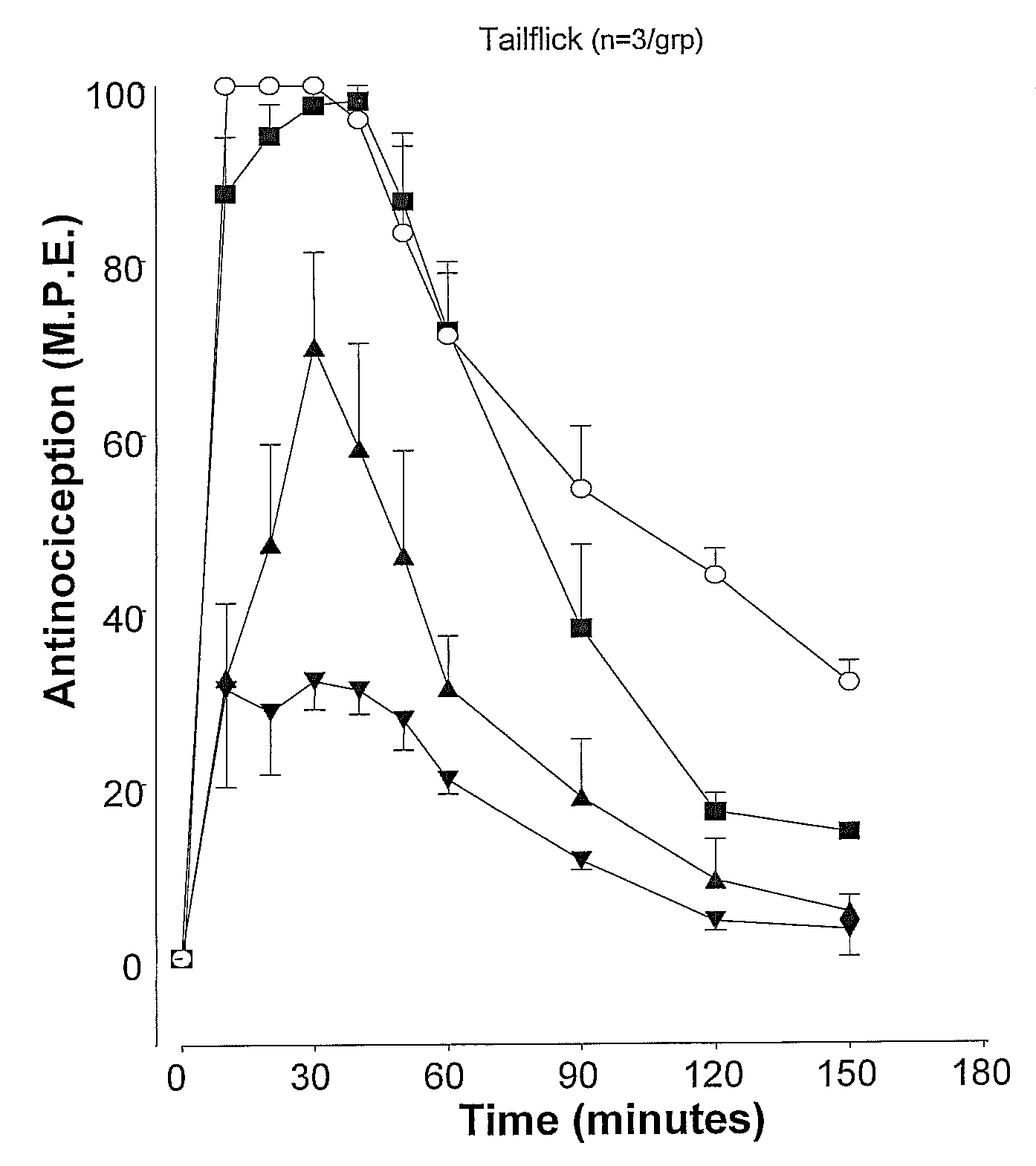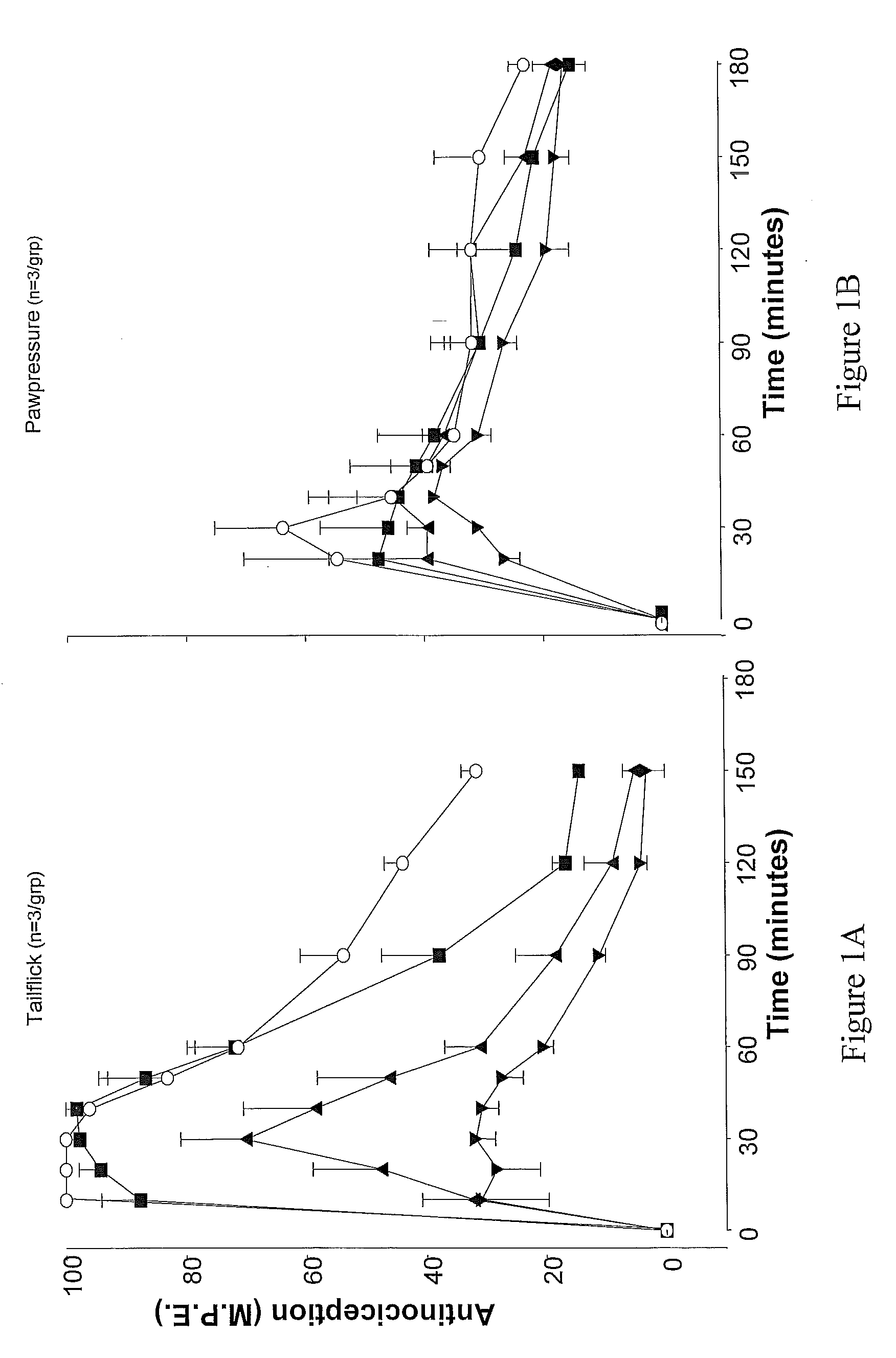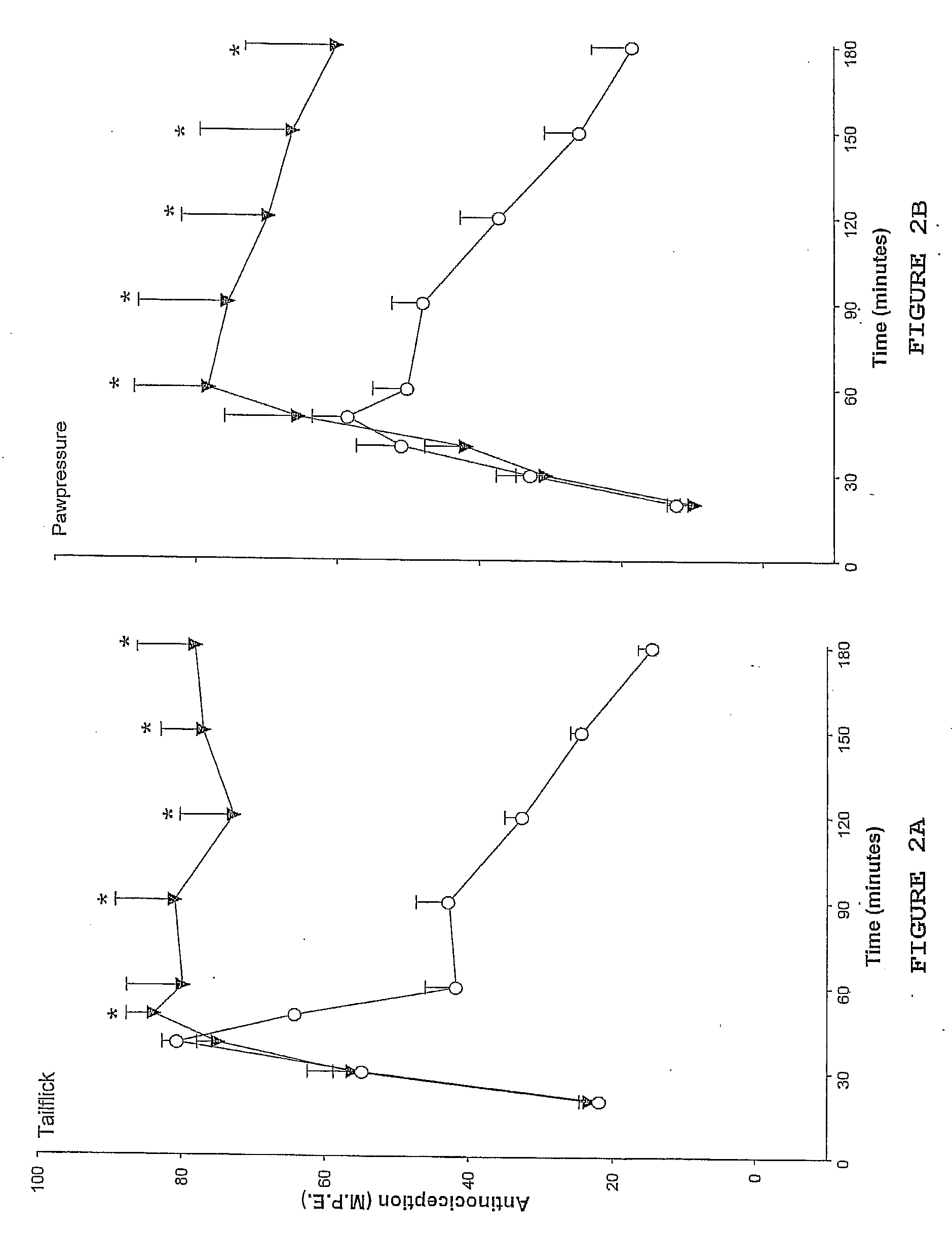Methods and Therapies for Potentiating a Therapeutic Action of an Alpha-2 Adrenergic Receptor Agonist and Inhibiting and/or Reversing Tolerance to Alpha-2 Adrenergic Receptor Agonists
a technology alpha-2 adrenergic receptor, which is applied in the direction of nitro compound active ingredients, drug compositions, biocide, etc., can solve the problems of limited therapeutic application of alpha-2 adrenergic receptor agonists in the treatment, and the adverse effects of clonidine for spinal analgesia such as sedation and/or hypotension
- Summary
- Abstract
- Description
- Claims
- Application Information
AI Technical Summary
Benefits of technology
Problems solved by technology
Method used
Image
Examples
example 1
Animals
[0070] Experiments were conducted using adult male Sprague-Dawley rats (Charles River, St. Constant, QC, Canada) weighing between 200-250 grams. Animals were housed individually in standard laboratory cages, maintained on a 12-hour light / dark cycle, and provided with food and water ad libitum. The surgical placement of chronic indwelling intrathecal catheters (polyethylene PE 10 tubing, 7.5 cm) into the spinal subarachnoid space was made under 4% halothane anesthesia, using the method of Yaksh and Rudy Physiol. Behav. 1976 7:1032-1036). Specifically, the anesthetized animal was placed prone in a stereotaxic frame, a small incision made at the back of the neck, and the atlanto-occipital membrane overlying the cisterna magna was exposed and punctured with a blunt needle. The catheter was inserted through the cisternal opening and slowly advanced caudally to position its tip at the lumbar enlargement. The rostral end of the catheter was exteriorized at the top of the head and t...
example 2
Assessment of Nociception
[0071] The response to brief nociceptive stimuli was tested using two tests: the tail flick test and the paw pressure test.
[0072] The tail flick test (D'amour & Smith, J. Pharmacol. Exp. Ther. 1941 72:74-79) was used to measure the response to a thermal nociceptive stimulus. Radiant heat was applied to the distal third of the animal's tail and the response latency for tail withdrawal from the source was recorded using an analgesia meter (Owen et al., J. Pharmacol. Methods 1981 6:33-37)). The stimulus intensity was adjusted to yield baseline response latencies between 2-3 seconds. To minimize tail damage, a cutoff of 10 seconds was used as an indicator of maximum antinociception.
[0073] The paw pressure test (Loomis et al., Pharm. Biochem. 1987 26:131-139) was used to measure the response to a mechanical nociceptive stimulus. Pressure was applied to the dorsal surface of the hind paw using an inverted air-filled syringe connected to a gauge and the value at...
example 3
Determination of Inhibition of Clonidine Analgesia by Alpha-2 Adrenergic Receptor Antagonists
[0074] The effects of atipemazole were tested on the acute analgesic action of spinal clonidine to establish that this drug acts as an alpha-2 adrenergic receptor antagonist. A single injection of clonidine was administered intrathecally and the response measured in the tail flick and paw pressure test. In subsequent tests, clonidine was delivered in combination with 1, 5 or 10 μg atipemazole. Following drug administration, nociceptive testing was performed every 10 minutes for the first 60 minutes and every 30 minutes for the following 120-150 minute period. Results for atipemazole are depicted in FIG. 1A (tail flick) and FIG. 1B (paw pressure).
PUM
| Property | Measurement | Unit |
|---|---|---|
| Concentration | aaaaa | aaaaa |
| Therapeutic | aaaaa | aaaaa |
Abstract
Description
Claims
Application Information
 Login to View More
Login to View More - R&D
- Intellectual Property
- Life Sciences
- Materials
- Tech Scout
- Unparalleled Data Quality
- Higher Quality Content
- 60% Fewer Hallucinations
Browse by: Latest US Patents, China's latest patents, Technical Efficacy Thesaurus, Application Domain, Technology Topic, Popular Technical Reports.
© 2025 PatSnap. All rights reserved.Legal|Privacy policy|Modern Slavery Act Transparency Statement|Sitemap|About US| Contact US: help@patsnap.com



